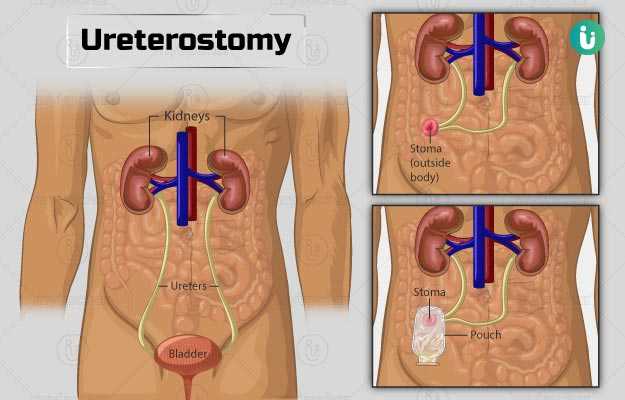Summary
Ureterostomy is a surgical procedure to create an opening in the abdominal wall and attach the ureters (tubes that carry urine from the kidneys to the bladder) to it with sutures. The procedure is done to divert the path of the urine in individuals who have had their bladder removed or have congenital disabilities affecting the bladder.
After the procedure, the urine will flow out from the abdominal opening. You will have to wear a pouch that will collect your urine. Some diagnostic tests need to be done before the surgery.
You can resume your normal activities in about two to three weeks after the surgery. You do not need any special clothes or diet after the procedure. A follow-up visit is generally scheduled two weeks after the surgery, but if you notice symptoms such as back pain, fever, or dark-coloured urine, see the doctor immediately.






































